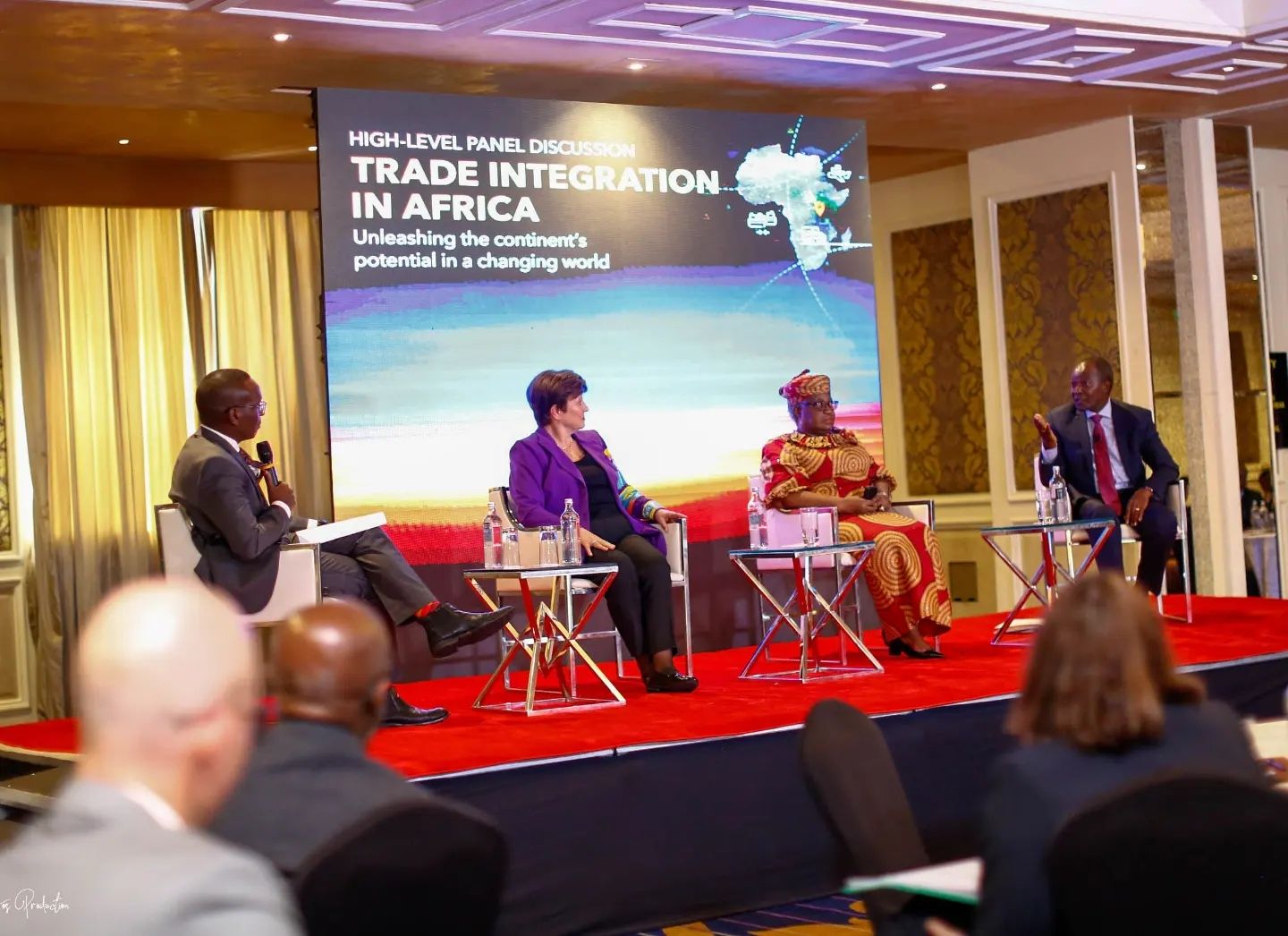Removing bottlenecks and deepening trade integration under the African Continental Free Trade Area (AfCFTA), is poised to elevate trade flow among African countries by 53 per cent, according to the International Monetary Fund (IMF)
This will also lead to an increase in the real Gross Domestic Product (GDP) per capita of the median African country of more than 10 per cent.
“If the African Continental Free Trade Area agreement is implemented, trade barriers removed, non-trade barriers removed, and logistics and transportation is improved upon on the continent, intra continental trade can grow by 53 per cent.
Trade outside the continent can grow by 15 percent, and this translates into tremendous benefits in terms of increase in income – 10 percent increase in real income,” said Kristalina Georgieva, Managing Director, IMF during Trade Integration in Africa paper.
IMF launched the paper in Kenya on May 5, 2023 under the theme “Unleashing the Continent’s Potential in a Changing World”
Georgieva said that when African countries traded amongst themselves more, they would deepen specialisation, boost productivity and diversification.
Recovering Trade in Africa
Dr Ngozi Okonjo-Iweala, Director-General, World Trade Organisation (WTO) who also graced the launch said that recovering from the recent global economic challenges and chain supply vulnerabilities required strengthening of global trade.
“At this particular time, making the African Continental Free Trade Area agreement work is important so that we can strengthen our regional economic activity with each other,” said Dr. Ngozi.
According to DG, the cost of the continent trading with the outsider is equivalent to a tariff of 350 per cent, which was one and half times larger than what you would find in developed countries, while intra-trade was equivalent to a 435 per cent tariff.
She called for the reduction of trade to actualise the good implementation of the AfCFTA
“At the WTO, we’re supporting it [AfCFTA implementation]; we’ve spent about €4 million in the past three years to help different countries build capacity to implement the protocols,” Dr Okonjo-Iweala said.
The AfCFTA trade pact is one of the flagship projects of the African Union (AU) Agenda 2063, with the goal of significantly boosting intra-Africa trade, value-added production and trade across all sectors of Africa’s economy.
So far, only 46 African states have ratified the agreement out of 55 that signed on to the free trade pact.
The pact is expected to be the world’s largest free trade area by population ever signed and with a combined Gross Domestic Product (GDP) of $3 trillion.


